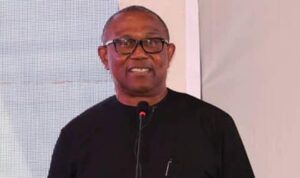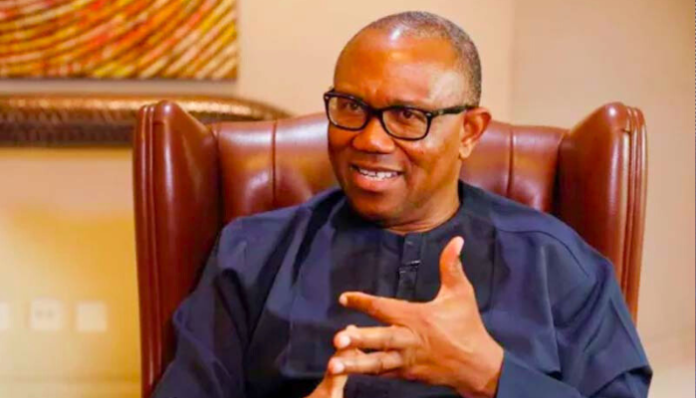Former Vice President and ex-Governor of Anambra State, Peter Obi, finds himself alongside notable figures like Bola Tinubu and Atiku Abubakar as they all reflect on the outcomes of the 2023 general elections.
These three men were presidential candidates representing the All Progressives Congress (APC), the Peoples Democratic Party (PDP), and the Labour Party, respectively.
In a recent interview, activist and lawyer Deji Adeyanju expressed his preference for Peter Obi over Atiku and Tinubu if he had to select among the three. However, he made it clear that he could not support Obi if Omoyele Sowore, the candidate from the African Action Congress (AAC), were also on the ballot.
Adeyanju pointed out that all three candidates—Tinubu, Obi, and Atiku—promoted capitalist policies, particularly advocating for the removal of fuel subsidies. “If I had to choose from Tinubu, Atiku, and Obi, I would go for Obi. But my stance changes when Sowore is included; I can’t support Obi under those circumstances. Ideologically, he doesn’t differ much from Tinubu and Atiku,” he stated.
He further criticized the candidates, questioning why subsidies aren’t removed for politicians and wealthy individuals instead. “Do you understand how much we subsidize for Dangote? Nigeria essentially supports him with its resources. What about the subsidies for people like Akpabio in the National Assembly?” Adeyanju queried during his conversation with Daily Post.
He continued to highlight examples of governmental excess, mentioning the First Lady’s desire to exchange naira for dollars and the president’s purchase of a new jet. “Why should a country struggling with poverty invest in new jets for unproductive politicians?” he asked.
When discussing whether Nigeria needs a new generation of politicians for the upcoming 2027 elections, Adeyanju advocated for fresh leadership, stating, “We need new faces because these candidates are cut from the same cloth. They have been repeating the same mistakes. Only Sowore stood apart with different views on fuel subsidies.”
Despite his criticisms, Adeyanju urged unity among political figures like Atiku, Obi, and Kwankwaso, noting that their divisions were harmful, as seen in the aftermath of the last election when they only came together to protest their loss.

When asked about his feelings toward Peter Obi, he clarified, “I don’t harbor any hatred for these politicians; my role is to critique them. Nigerians often resist criticism, viewing it as a personal attack. There exists a ‘God complex’ among many Nigerians, where they elevate their favored leaders to demi-god status. I believe in engaging with criticism rather than shunning it.”
He concluded with a stark reminder that none of the prominent figures, including Obi, should be viewed as saviors, highlighting past actions like investing state funds in personal ventures as indicative of the systemic issues in Nigerian politics. “I’m merely pointing out the facts,” he added.




